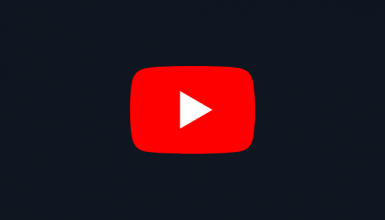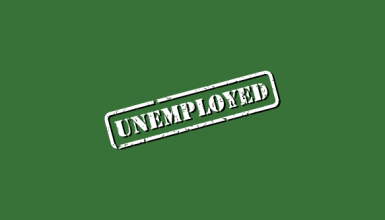Earning money online as a blogger is a dream shared by many. Constantly we see adverts pop-up on Facebook showing people who got rich online while lying on sunbeds at the beach. Just as often, we hear success stories from people who managed to quit the rat race, spend more time with their family and making a fortune writing about what they love for a few hours a day.
But is it really possible? Is it really that simple? And if you wanted to create your own blog with the aim of making money… where would you even begin?
These are the questions we’ll be answering in this comprehensive article. W look at how earning money from a blog works and how you can almost guarantee success. From there, we’ll also go over each of the steps you need to take to get started with your own site and audience.
How to Make Money From a Blog Easily
Making money from a blog can be easy. The problem is that many people don’t understand the nuances that make the difference between success and failure. Either that, or they’re so unsure as to where to begin, that they never even give it a go in the first place.
I’ve been working online as a blogger now for over 7 years and in that time, I have perfected the art of taking a new blog and helping it to find a large audience. I’ve done this countless times and often in the space of one year.
But it didn’t start that way.
Actually, for the first few years of my blogging experience I think I had an audience of about 10 people. I took me that long to understand how blogging works beyond the very basics and how to really monetize a site where I could write about things I found fascinating.
By reading this post, I hope you’ll be able to skip the growing pains that most new bloggers go through. I’m passing on my hard-won wisdom so that you can go straight to the top without making any of the most common (and easily avoided) mistakes.
So if you like the idea of earning money online and doing a job that you are genuinely passionate about, grab yourself a cup of tea and read on!
How Making Money From a Blog Works
Before we get stuck into the nitty-gritty, it helps to take a step back and look at how blogging generally works. This way, you won’t just be following steps blindly but should hopefully understand why those steps are important and how they’re going to work to take you to the top of the ‘blogosphere’ (tip one: no one says ‘blogosphere’ any more…).
With that in mind, how does running a blog earn you money? Where’s the value?
Essentially, the opportunity to make money from a blog comes from the fact that you have a captive audience, who are in essence ‘leads’. The more eyes you get looking at your content on a regular basis, the more valuable/profitable your website potentially is.
Why? Because a captive audience is an audience that you can potentially sell to – and especially if that audience has grown to trust your word by reading your articles and seeing that you know what you’re talking about.
This then gives you two options as a blogger looking to make some money: get paid by advertisers to show their ads on your site or place adverts for your own products that you can sell. The former is much quicker and easier because you don’t need to develop a product but the latter is potentially much more profitable and a better way to keep your visitors on your site and engaged with your brand.
So this is how we’re going to be making money. That means our main objectives are to build the number of visitors we have to our site, to try and encourage a high quality of visitor who will engage with our content and to increase trust and authority in brand amongst those visitors.
That’s what we’ll be looking to achieve by following the steps below.
Choosing Your Topic/Niche
The first step when you set out to create a profitable blog, is to choose your topic or subject matter. In the blogging world, this is usually referred to as a ‘niche’.
Your niche is incredibly important because it will influence everything about your business moving forward. The subject you choose to write about will not only impact the design of your site and the topic you’ll spend your time writing about, it will also dictate the size of your potential audience, the types of products and adverts you can use and even marketing options available to you.
The most popular niches on the web tend to be things that have a broad appeal and that offer to make people’s lives better. These include:
- Fitness and health
- Web design
- SEO (Search Engine Optimization)
- Making money
- Dating
- Self-improvement
- Business
- Fashion
- Technology
Slightly less-common-but-still-popular subjects include things like:
- Travel
- Sports (Football/Basketball/Running)
- Home improvement
- Gaming
- Film
- Cooking/Recipes
- News
Your objective here is ultimately to create an audience that you can monetize. To this end, you should choose a niche that gives you good things to sell and that attracts a demographic with disposable income. You also want the biggest audience possible but at the same time you want to avoid an over-saturated market.
If you enter into the ‘fitness’ niche and create a website called something like ‘getabsthisyear.com’ (I’m actually quite fond of that URL!) then you’ll be facing a huge amount of competition and getting to the top of Google for instance is going to be very difficult. You’re now a small fish in a big pond, giving you potentially a lot of opportunity for growth but in a market that will be tough to crack.
At the opposite end of the spectrum, you have niches like ‘curling’ or ‘sewing patterns’. There is considerably less competition in areas like this, which means you can quickly grow to be one of the biggest authorities in that niche.
And while that potential audience might be small, they’re also likely to be very dedicated meaning that they should be more inclined to buy the things you’re selling/click on the adverts you’re publishing.
The best case scenario is that you find something that’s in-between these two extremes. That means finding a big niche without too much competition. Something that a lot of successful sites do to accomplish this, is to ‘combine’ different niches into a single subject, to create an entirely unique niche but with a specific target audience in mind, or to find a sub category within a larger niche.
For instance, bodybuilding is a large and crowded niche – but bodybuilding for the over 50s is a little less competitive. Likewise, the successful website ‘Art of Manliness’ has created a new niche that nevertheless has a very clear target demographic (men). ‘Nerd Fitness’ is another popular example that has combined two popular niches into one new one (popular culture and fitness).
Most important of all though, is to choose a niche that you will enjoy writing about. Pick something you’ll be happy to spend hours researching and writing up. If you choose a topic you don’t know about or care about then you apathy will come across in your writing and you’ll be much more likely to give up before you become successful. You have been warned!
Hosting Your Site
Okay, enough preparation and gum flapping… it’s time to actually start building!
And the first, most crucial step here, is to find a space on the net where you can host your files and create a website. Or to use the technical terminology, we’re going to find you a hosting account and a domain name…
Hosting Account
A hosting account is what will give you your ‘web space’ – the physical storage where you will keep your files.
This means that you’ll be able to upload the files that make up your web page (the images, the code, the articles etc.) onto a server that will be connected to the internet 24/7. When someone wants to look up your website, the files on the server will be ‘served’ and the browser will display them according to your instructions.
Domain Name
Your domain name (AKA URL) is the address that people will use to reach your domain, which will normally be the same as your website’s brand name, or might be descriptive of your site.
For instance, Google’s ‘domain name’ is ‘www.Google.com’.When thinking about your branding and your company name, it pays to look for domain names at the same time. This way you can ensure that the name you choose for your website hasn’t already been taken.
Once you find your domain name and pay for it, you can direct it to your server space, such that people see your website when they type it in.
A domain name and a hosting account are two separate things and in theory you can have one without the other. Or you may have multiple domain names all pointing to a single hosting account (a ‘.com’ and a ‘.co.uk’ for instance for international companies).
In most cases though, the domain name and hosting account will be ordered through the same company and will be linked from the start. This makes things nice and easy for bloggers starting out.
To find both, you will likely want to find a hosting provider. This is a company that sells hosting and domain names and which looks after a huge room of servers somewhere.
There are many different hosting providers, all of which offer varying amounts of space, varying speeds and different levels of support. Most have different packages too, allowing you to choose the precise options you want at the price best suited to you.
For a basic package, you normally won’t be looking to pay more than a few hundred dollars maximum for the year and that should cover both your hosting account and domain name. If you ever need more space or more bandwidth, then you can always upgrade later as needs demand.
Creating Your Website With WordPress
How long does it take to build a website? Days? Months? Years?
How about “none of the above”? These days it literally takes less than an hour to have a site up and running with a unique design and professional feel. This is thanks to the now-ubiquitous tool ‘WordPress’.
WordPress is a blogging tool that has grown to become much more than that. For your purposes, it will be at once a blogging platform, a content management system (allowing you to easily add, remove and edit content) and a site builder.
In essence, it acts as the ‘framework’ for your site so that all you have to do is add new pages and posts as you need them. What’s more, it also makes it simple to change the design and layout or to add advanced features via ‘plugins’ and ‘widgets’.
WordPress makes it incredible simple to create and edit your blog which saves time and allows you to start making money and having fun all the sooner. What’s more, it is a ‘known quantity’. In other words, it has been tried and tested by countless bloggers before you and has proven itself to be capable of powering highly successful websites. Huge blogs and websites like Smart Passive Income, Forbes, The Verge and more all run on WordPress, so you know that it won’t be a limiting factor in your progress.
Adding Content and Growing Your Traffic
Once you’ve built your site, you need to start adding content. This is essentially what is going to attract your visitors, and it has a number of other important roles too.
The main bulk of your work now is going to revolve around creating and uploading content. Content includes web pages and blog posts, both of which should offer entertainment value or useful information for your audience. This is what will give people a reason to visit your site and hopefully keep bringing them back.
And it should be fun for you too – if you’ve chosen a subject that you think is interesting, then you should just be writing about what you love.
Of course not all content is made equal though and if you want to give your site the best chance for success, then you need to create the type of content that is clickable, entertaining and sharable.
The best way to do this? Offer something that not everyone else is offering!
Too much content on the web these days is simply derivative and offers no real value. If you have a fitness website and your posts consist of ‘Ten Ways to Lose Weight’ or ‘Top Arm Exercises’ then you’re offering nothing new. Instead, look for information that other bloggers aren’t writing about and that people will find genuinely useful and transformative.
Other types of content that are successful include definitive resources and how-tos, as well as content aimed at very specific audiences that visitors can share with their friends.
No matter what type of content you choose to create, it’s crucial that you focus on quality, otherwise you’ll be wasting your time and will simply be hurting your brand. While there is no golden rule as to how much content you need, it certainly pays to update as regularly as you can – especially in your site’s formative years.
The more content you add, the more chance there is for people to find your site and the faster it will get indexed by Google.
Look at it this way: if you ever hope for blogging to become your full time job, then you need to treat it like a full time job. That means working full time! You very much get out of this gig what you put in.
Sharing and Promoting Content
This isn’t a case of ‘build it and they will come’ though – if you hope people will find your site, then you need to point them in the right direction.
Sharing your content through your social media is one way of doing this. Make sure your branding is prominently displayed on your accounts and try to add other content in the form of posts and updates. This way, your social media can gain a following of its own, which will be synergistic with your site.
Likewise, you can share your posts manually to online communities like Reddit, or you can work with other bloggers by getting them to publish your ‘guest posts’. SEO is another tool you can use, which essentially means editing your site and adding specific types of content in order to ensure you show up when people search for your niche on Google. There’s plenty more information on this available online, or you might even consider paying a company or individual to handle it for you.
The final and most important step? Consistency!
As long as you are consistently posting to your site, as long as you are providing real value, and as long as have placed your ads in a smart fashion (or you are selling a good digital product), then you can start to make money from your blog.
But it takes time. A LOT of time.
That’s why the most important tip of all is to pick a topic you’re passionate about. That way, you won’t mind the daily grind of posting to your site, and you’ll find yourself excited by every little bit of success that comes away.
And even a small income is better than nothing, especially when you love what you’re doing!



